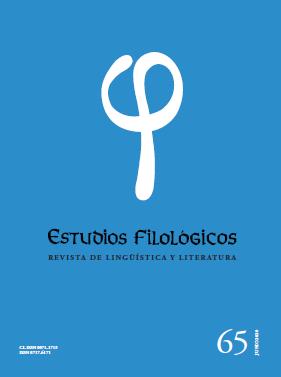Presence and Function of Psi Knowledge in the “Golden Age” of Chilean Science Fiction (1959-1973)
Main Article Content
Abstract
The works of Hugo Correa, María Elena Aldunate and Antonio Montero have been recognized as crucial contributions in the development of Chilean Science Fiction, giving rise to the so-called “Golden Age” of the genre (1959-1973). Despite that their novels and stories problematize the sociocultural transformations of their time, their writings also incorporated conceptual references from psychology, psychiatry and psychoanalysis -psi knowledge- in the configuration of the plot and the features of its characters. The present article seeks to identify the presence of concepts coming from the field of psi knowledge in the work of these three authors and analyze the literary effects they had in the construction of the arguments and the characters of their stories. In this way, the singularity of the works of this period could not be reduced to their social sensitivity or the use of technological or scientific categories. In addition to interpreting socio-cultural conflicts, Chilean Science Fiction of that decade showed a marked interest in the dilemmas of the subjectivity of its time by addressing the problems pertaining mental, intelligence, perception, psychological self, anxiety, and alterity through the incorporation of psi knowledge in the process of literary creation.

